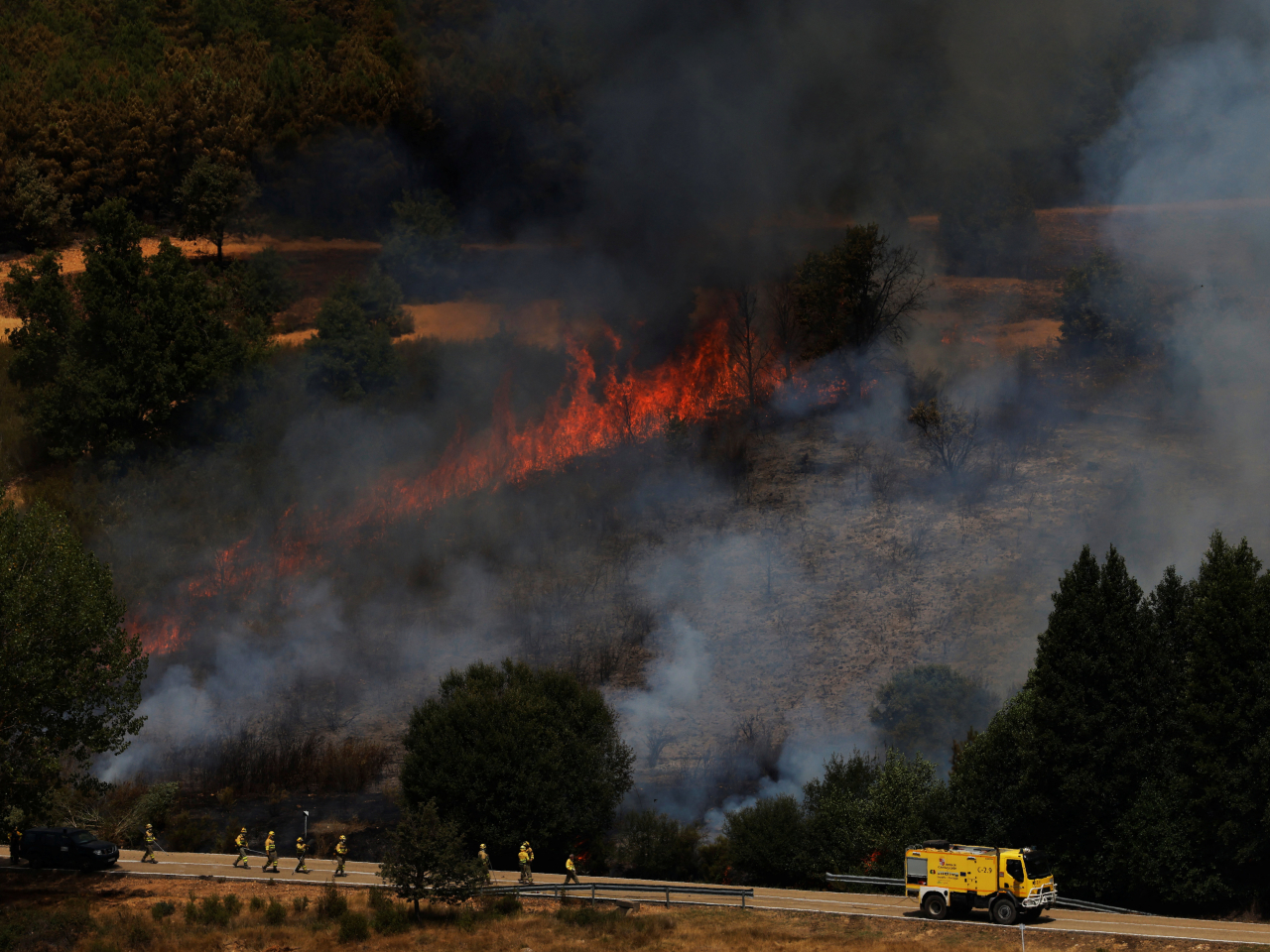Extreme heat and strong winds caused "fire whirls" as a blaze burned several houses and forced the evacuation of hundreds of people from near a Unesco-listed national park in northern Spain, authorities said on Monday.
Thirteen fires broke out in the north of the Castile and Leon region, with about 700 people told to abandon their homes in half a dozen villages.
Four fires were still live, Juan Carlos Suarez-Quinones, chief of environment for the regional government, said on Monday morning.
Firefighters had extinguished the other nine.
High temperatures on Sunday had caused the so-called fire whirls near Las Medulas park, forcing firemen to retreat and burning some houses in the nearby village, according to Suarez-Quinones.
"This occurs when temperatures reach around 40 degrees Celsius in a very confined valley and then suddenly (the fire) enters a more open and oxygenated area. This produces a fireball, a fire whirl," he said.
Scientists say the Mediterranean region's hotter, drier summers put it at high risk of wildfires. Once fires start, dry vegetation and strong winds can cause them to spread rapidly and burn out of control, sometimes provoking fire whirls.
A prolonged heatwave in Spain continued on Monday with temperatures set to reach 42C in some regions.
The heatwave gripping parts of Europe sent temperatures up to 43C in southern France, increasing risks of wildfires in wine country.
The French national weather authority, Météo-France, placed 12 departments on red alert, the country’s highest heat warning, anticipating exceptional heat stretching from the Atlantic coast to the Mediterranean plains.
Forty-one other departments were under lower-level orange alerts, as was the neighbouring microstate of Andorra, between France and Spain.
“Don’t be fooled – this isn’t ‘normal, it’s summer.’ It’s not normal, it’s a nightmare,” agricultural climatologist Serge Zaka, told BFMTV from Montauban in France’s Tarn-et-Garonne department, where the blistering heat pressed relentlessly throughout the day.
Social media images showed shuttered streets in Valence, residents shielding windows with foil to reflect the light, and tourists huddling under umbrellas along the Garonne in Toulouse.
Across the south, café terraces stood empty as people sought cooler corners indoors.
Scientists say Europe is becoming the world’s fastest-warming continent.
According to the UK-based Carbon Brief, 2025 is predicted to be the second- or third-warmest year on record. Europe’s land temperatures have risen about 2.3C above pre-industrial levels, nearly twice the global rate, intensifying heat waves, the EU’s Copernicus climate service reports.
EU data show burned area across the continent is already far above the long-term average this summer, with major outbreaks in Spain, Portugal and deadly blazes in Greece since late June. (Reuters/AP)





